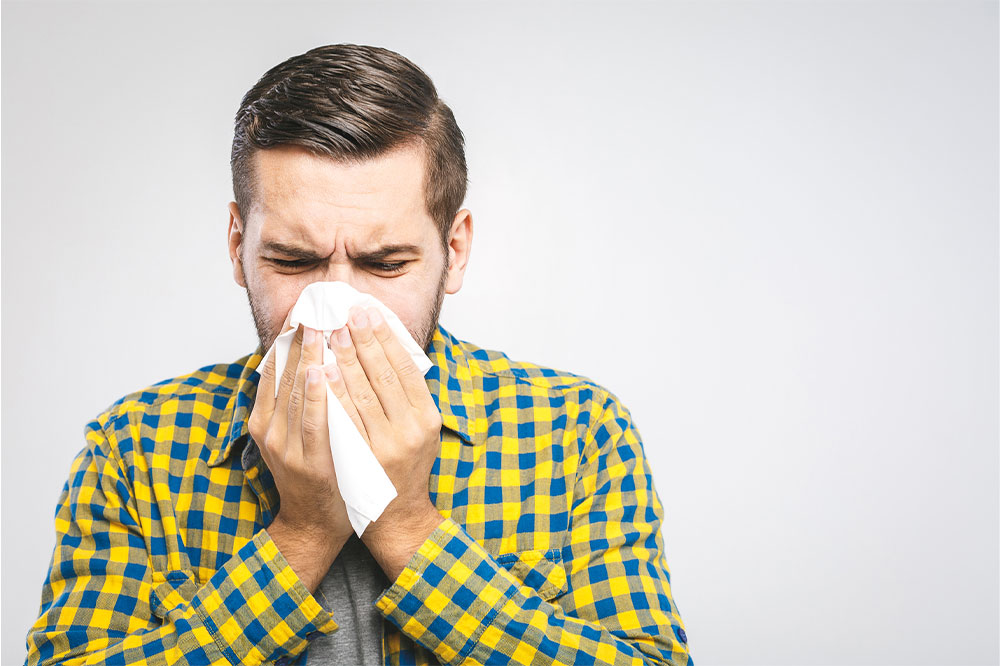3 tips to combat cold and flu attacks

The common cold and flu are both viral infections that affect the respiratory tract. While the symptoms of the conditions are the same, the flu is more severe. Patients experience sore throats, congestion, coughing, chest pain, headaches, sneezing, and high fevers. Although the conditions are common, they can be fatal if not managed. Thankfully, there are many ways to control the symptoms of a cold and the flu. The top three ways are:
Begin the treatment
Once the symptoms start to show, you must consult with a certified health practitioner and start your treatment. Fever, aches, and chills are pretty common symptoms of the cold and flu. Two common treatments prescribed by the doctor, in this case, are XOFLUZA® and TAMIFLU®.
XOFLUZA®
It is a prescription treatment that is advised for people aged over 12 years. It is advised for people exhibiting the symptoms for not more than 48 hours. It is also prescribed for people aged 12 years and older who have been in touch with someone suffering from a cold or flu since the virus is highly contagious. Doctors do not prescribe this treatment for children below 12 years of age as it is still unknown if it is effective for kids in this age group.
TAMIFLU®
It is an antiviral treatment that fights the virus in the body, stopping it from multiplying. Though it is not a substitute for the flu vaccination, the treatment is effective for kids aged two weeks and older suffering from influenza. It is also advised for people aged one year and older to prevent cold and flu.
Foods to have to manage cold and flu
Being down and under the weather with the cold and the flu can leave you feeling fatigued and uninterested in food. But, to recover fast and effectively, you must consume the right food. Here is a list of food items that will help you:
Coconut Water
Coconut water is a source of electrolytes and is a savior for the dehydrated body, especially if you have been puking, running a fever, having diarrhea, etc. The natural sugar content also helps provide fast energy to the body. It is best to sip the water slowly, as too much can cause bloating.
Hot tea
The warmth of the tea helps decongest the throat and the chest. Do take care that the tea is not too hot and that it doesn’t bother the throat. The polyphenols in the tea also help due to their antioxidant nature.
Spicy foods
The capsaicin in peppers and chilies is an effective pain reliever and has a desensitizing effect. Consuming spicy foods helps clear the sinus passage, causing a runny nose.
Bananas
The potassium in the fruit help in electrolyte replenishment, while the fiber can stop diarrhea.
Oatmeal
As it contains tons of essential nutrients and calories, oatmeal can help support in speedy recovery of the patient.
Yogurt
This snack is good for the stomach and the digestive system, speeding up the healing process.
Foods that contain vitamin C
Oranges, strawberries, guavas, pineapples, and vegetables like tomatoes and broccoli are also excellent when you have a cold. Vitamin C is rich in antioxidants that strengthen the immune system. Fruits like strawberries contain anti-inflammatory anthocyanins and have antiviral and immune-boosting properties.
Vitamin E-rich foods
Almonds, sunflower seeds, blueberries, and whole grains also contain antioxidant properties that help you get back on your feet faster.
It is advisable to avoid foods like chocolates, sugary and sweetened drinks and beverages like juices and sodas, and fatty, fried foods like chips and onion rings. Staying away from greasy, carb-rich foods like pizzas is also a good idea when combating the cold and flu.
Home remedies to manage cold and flu
Hydration
It is essential to stay hydrated when recovering from a viral infection. Hot liquids help the chest, nose, and throat decongest. This, in turn, helps you get a good night’s sleep.
Sleep
One of the best ways to fight cold and flu is to sleep and give your body adequate rest. As you sleep, the body slows down, and its natural reparative mechanism takes over, helping the system heal faster.
Aromatherapy
Certain essential oils can make it easier for you to breathe through the nose as they clear the nasal passage. Pure oils of eucalyptus, camphor, and menthol are known to provide effective relief.
A steamy shower
When you take a steamy shower, it tends to provide relief to the nasal passage and keeps it moisturized. If you are unable to stand under the shower, you might use a chair and sit under it or take a sponge bath using warm water.
Gargling with warm salt water
The use of lukewarm salt water to gargle regularly throughout the day helps soothe an irritated and sore throat.
Nasal irrigation
Using salt water or saline water can combat nasal congestion pretty fast. Ensure that the water is warm as that will more effectively impair the virus. The method involves pouring the water into one nostril. It will enter the nasal cavity and come out of the other nostril. In the process, it cleans the cavity of mucus and viruses.
Conclusion
Colds and flu are common; however, they should be treated effectively for faster relief. Besides the treatment, you can try the home remedies suggested here for optimal recovery. Mild exercises and yoga as per doctor’s advice, proper meals, and a full night’s sleep will help the symptoms and benefit overall health.



